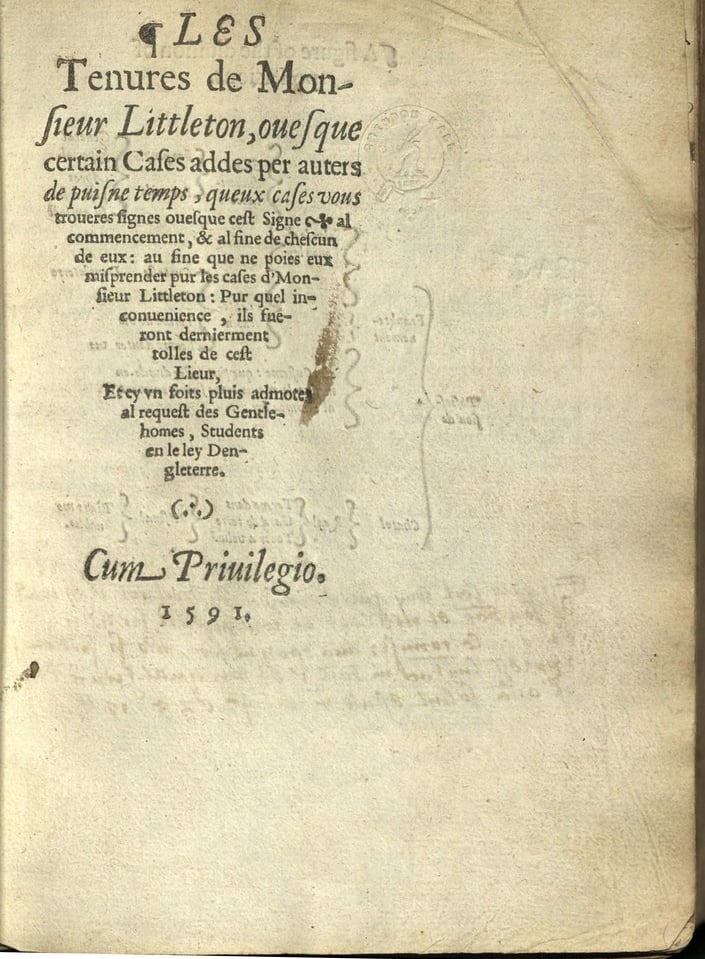Sir Thomas Littleton’s Tenures
Littleton's Tenures, a late 15th-century treatise by Sir Thomas Littleton, systematically explained complex English feudal land law in accessible Law French, detailing various forms of property ownership and associated rights. This seminal work quickly became the authoritative text on property law, profoundly influencing legal education and practice for centuries, notably through Sir Edward Coke's comprehensive commentary. Although its feudal context became obsolete, its rigorous analytical approach, precise definitions, and fundamental principles significantly shaped the evolution of property law in England and common law jurisdictions globally, establishing it as a foundational text in legal scholarship.
Littleton's Tenures stands as a landmark work in English legal history, a treatise penned by Sir Thomas Littleton in the late 15th century. This seminal text provided an accessible and systematic explanation of English land law, specifically focusing on the complex system of feudal tenures that governed property ownership during that era. While legal texts of the time were often written in Latin or Law French and were notoriously dense, Littleton composed his work in a clear, relatively straightforward Law French, making it understandable to a broader legal audience. The treatise meticulously detailed the various forms of landholding—such as fee simple, fee tail, tenancy for life, and tenancy by the curtesy—and the rights and obligations associated with each, distilling centuries of convoluted common law into a coherent framework. Its purpose was to clarify and categorize the intricate legal relationships between landlords and tenants, providing practical guidance for lawyers and students navigating the intricacies of real property.
The significance and enduring legacy of Tenures cannot be overstated; it rapidly became the preeminent authority on property law, profoundly influencing legal education and practice for centuries. Its clear structure and analytical depth made it an indispensable textbook, laying the foundational understanding for generations of common lawyers. Perhaps its most notable legacy stems from Sir Edward Coke's monumental commentary, "Coke upon Littleton," published in the early 17th century. Coke's detailed annotations solidified Tenures's status as the quintessential text on English common law, transforming it into a dense yet vital resource that integrated statutory law, case precedents, and legal maxims. While its feudal system faded, Tenures' rigorous analytical approach, precise definitions, and fundamental principles shaped property law's development in England and common law jurisdictions worldwide, including the United States, cementing its place as a cornerstone of legal scholarship.


